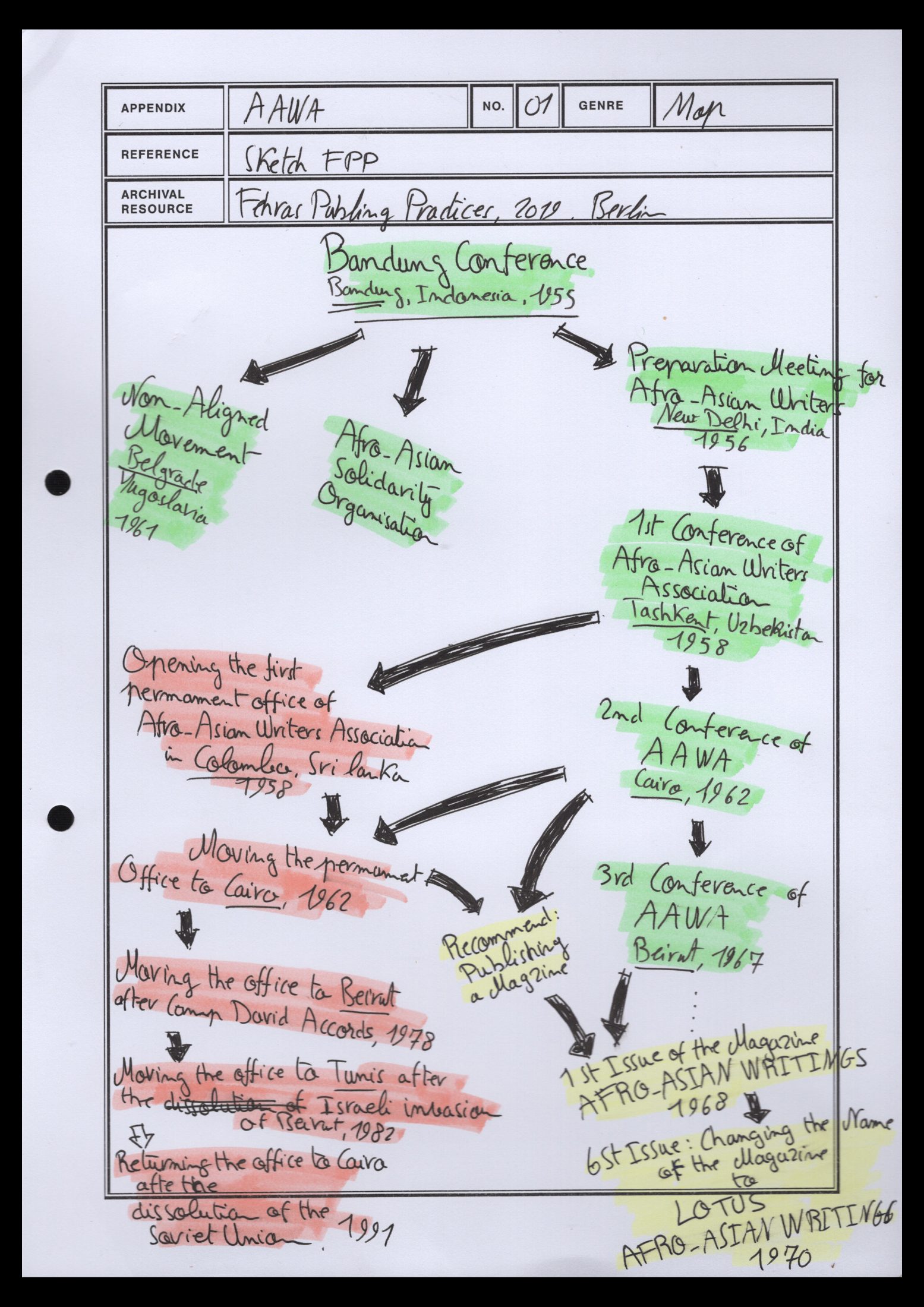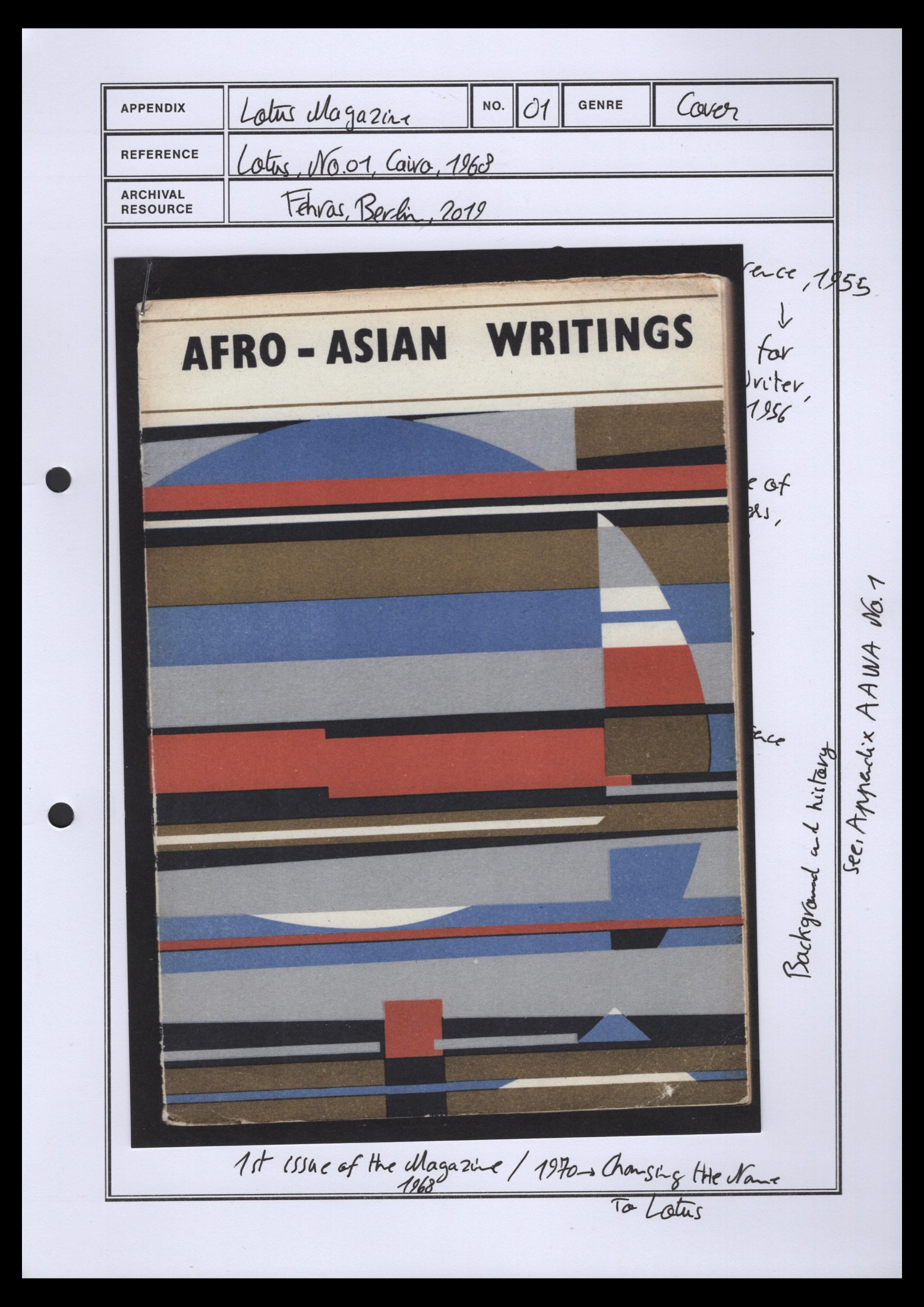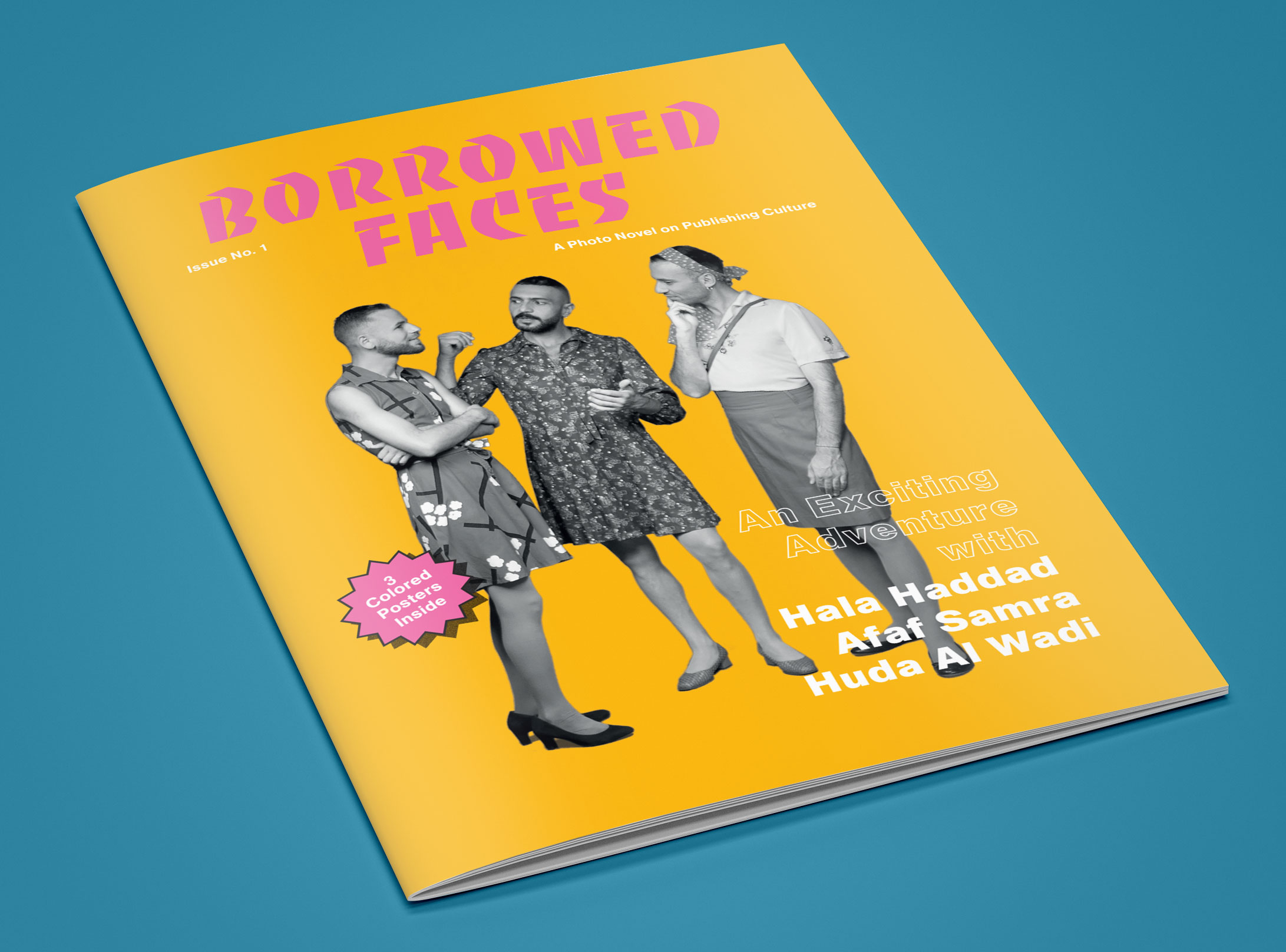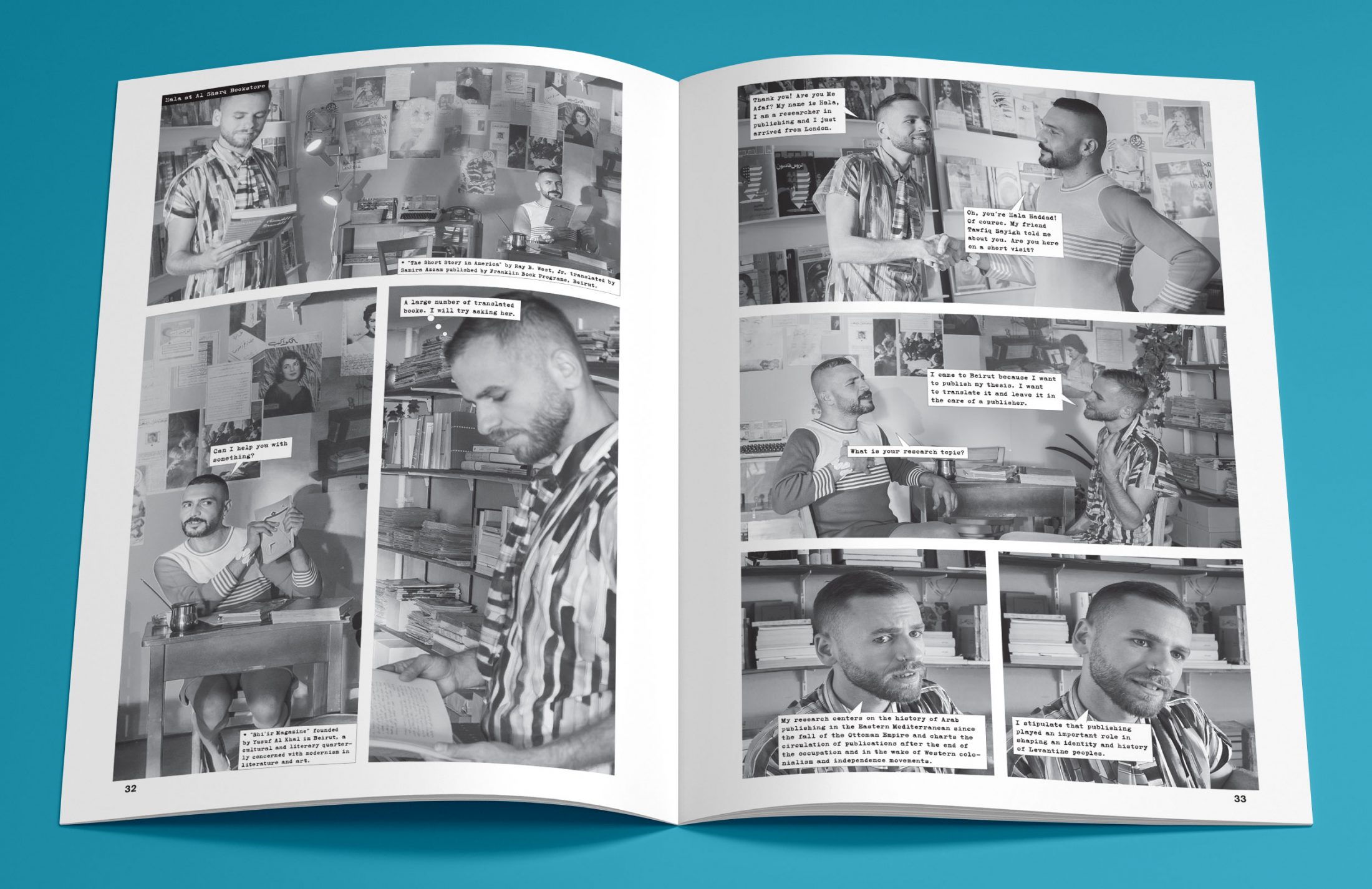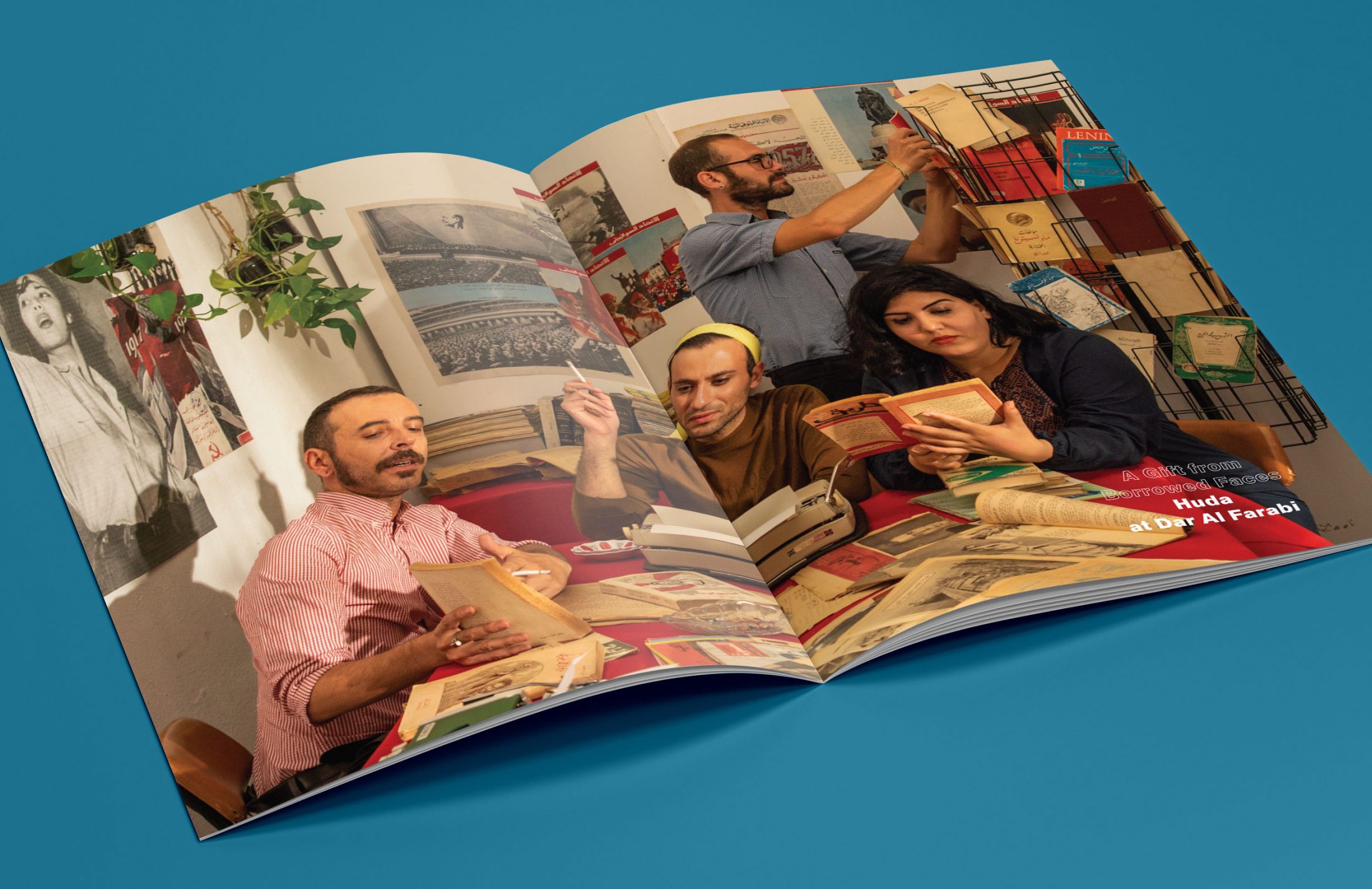Fehras Publishing Practices
Borrowed Faces
A Series of photo-novels on Publishing Culture
During their two years of research, Fehras will continue to work on their long-term project “Borrowed Faces”. This project deals with the Cold War era that was among the most fertile and critical periods in the history of Arab culture and publishing because it entangled and intertwined politics with culture. The rivals in the bipolar world order, the United States and the Soviet Union, both pursued a policy of cultural and intellectual hegemony, thereby implicating cultural and publishing practices in a new international politics. In such a bipolar order, each superpower established institutions and foundations to fund international networks and projects. Thus, the Eastern Mediterranean and North Africa became integral to the cultural Cold War. As these changes unfurled, Arab culture and publishing were transforming radically from within. At the core of these movements were publishers, writers, poets, and translators, some of whom established collectives or who launched initiatives, publications, and institutions. The work looks into this period by observing the common denominators between cultural practices then and today. These commonalities are particularly striking if we consider how this era witnessed the dawn of the globalization of culture in the Arab region, which had become entwined in international networks, and how political funding began to support culture. The work questions the movements of intellectuals from country to country, across contexts, and their autonomy, their independence from the rival forces pushing for cultural hegemony. It also attempts to understand how intellectuals shifted between the centers of the bipolar world order, and what „alignment“ with the Arab meant.
The visualization of this long-term project is taking the form of a series of photo-novels that blend the archive with fiction. The first issue was published in October 2019. The second issue, which will be presented at the end of 2021, is based on research focussing on the Afro Asian Writers Association (AAWA) and the American Congress for Cultural Freedom (CCF). The story will follow a network of figures, publications and institutions who were active between the 1960s and the 1970s in Cairo, Khartoum, Beirut, Bandung, New Delhi, Paris, Rome, London, New York and Moscow. It traces their publishing practices in the wake of post-colonial and multicultural consciousness that started to grow in the Global South opposing the Soviet and American axes of power.
Fehras Publishing Practices (Sami Rustom, Omar Nicolas and Kenan Darwich) is an artist collective founded in 2015 in Berlin. It researches the history and presence of publishing and its entanglement in the socio-political and cultural sphere in the Eastern Mediterranean, North Africa and the Arab diaspora. It observes publishing as a possibility for creating, and accumulating knowledge and thus initiating projects that carry different formats such as installations, films, publications, lectures and performances aiming to extend the notion of publishing.
Recent projects include “Lip-Sing For Your Art!, A Bilingual Karaoke”, Centre Régional d’Art Contemporain OCCITANIE / Pyrénées-Méditerranée, Sète (2020); “Borrowed Faces. Issue No. 01”, MMAG Foundation, Amman (2020); “Borrowed Faces. Stories of Publishers during the Cold War”, Neuer Berliner Kunstverein (n.b.k.), Berlin (2019); “When the Library Was Stolen. On the Private Archive of Abd Al-Rahman Munif”, Kampnagel, Hamburg (2018); “Disappearances. Appearances. Publishing”, EMST, Athens (2018); “When the Library Was Stolen”, book launch and public talk, Ashkal Alwan, Beirut (2018); “Soapy Post-modern Bathwater”, Sharjah Biennale 13, Tamawuj, Sharjah (2017); “Series of Disappearances”, Villa Romana, Florence (2017); “Waiting Trajectory”, Haus der Kulturen der Welt, Berlin (2017).
